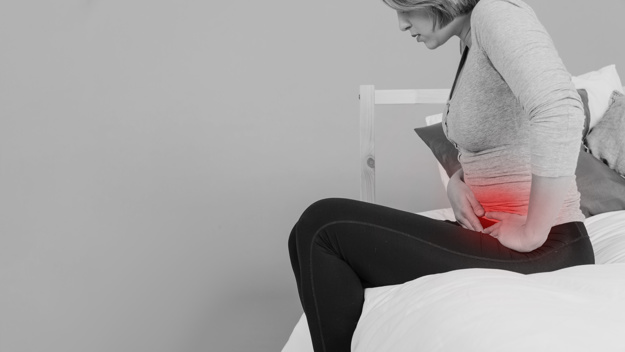Share

7 COMMON DIGESTIVE PROBLEMS YOU SHOULD LOOK OUT FOR
By Victoria Healthcare 22 May 2019

Minor digestive problems bother about 40% of people at any given time. However, if you don’t pay attention to your diet and maintain a healthy lifestyle, you will be at risk of the following digestive problems:
1. Gastroesophageal Reflux (GERD)
GERD is a very common chronic digestive disease, resulting in heartburn and indigestion. This is caused by the stomach acid or bile flowing from the stomach to the esophagus, because the valve between them is weak.
Symptoms: a burning feeling in the chest, difficulty breathing, dry cough, nausea, difficulty swallowing, acid reflux back into the throat or mouth, etc.
Prevention: quit smoking, avoid overeating, avoid foods that may trigger heartburn (such as fries, spicy foods, onions, etc.). Don’t eat spicy or greasy foods shortly before bedtime. Lose weight!
2. Gallstones
Middle-aged women, or those who are overweight, have high blood cholesterol levels, are more likely to get gallstones. If gallstones cause pain, surgery cholecystectomy may be indicated.
Symptoms: pain under the right rib cage, or sometimes in the back or shoulder blades. Pain after eating greasy foods, nausea and sometimes vomiting. In severe cases, where the main bile duct is plugged up, jaundice, clay-colored stools, fever, nausea, indicate a serious problem and is an emergency. Get help immediately for these symptoms.
Prevention: stay active, eat more fiber (veggies and many fruits), cut down on fatty foods. Medications to regulate hormones can also put you at risk.
3. Celiac disease
Celiac disease is also known as gluten sensitivity or gluten intolerance. Gluten can be found in many types of grains like wheat, rye, oat, etc. This allergy mostly affects the small intestine.
Symptoms: diarrhea, weight loss, bloating, swollen belly or belly pain, mouth sores, fatigue, pale skin, rash, and frequent muscle spasms.
Prevention: Instead of gluten, opt for black or brown rice, quinoa, lentils, soy powder, corn powder and amagranth.
4. Crohn's disease
Crohn’s disease (inflammatory bowel disease) is a chronic inflammation of the intestine. Crohn’s disease may affect both the small intestine and large intestine, and even other parts of the digestive system, ranging from the mouth to the very end of the intestine. Arthritis may also occur.
Symptoms: fever, fatigue, diarrhea, low belly pain, bloody stools, decreased appetite, weight loss, etc.
Prevention: This cannot be reliably prevented. But generally, limit consumption of milk and fats, eat small meals, manage stress, relax, and stay active.
5. Ulcerative colitis
Ulcerative colitis causes ulcers in the lining of the large intestine. Digestive fluids that help with food digestion may cause irritation, resulting in more severe ulcers.
Symptoms: belly pain, diarrhea, stools that have pus and blood, fatigue, weight loss, decreased appetite, and fever.
Prevention: avoid prolonged stress, drink plenty of water, and exercise regularly.
6. Irritable bowel syndrome (IBS)
Irritable bowel syndrome is a functional disorder of the digestive system. Those with irritable bowel syndrome often get digestive problems when they are triggered, stressed out, worried or eat certain foods.
Symptoms: bloating, belly pain, constipation, diarrhea, or both.
Prevention: avoid foods that may trigger digestive problems, relax to avoid stress, stay active (yoga is a good choice).
This is one of a family of bowel disorders that can be related to your “microbiome”, the bacteria that live mostly in your colon. They regulate everything from digestion to your immune system. If the wrong bacteria grow high up into your small intestine, you can get SIBO (Small Intestinal Bacterial Overgrowth syndrome). This can produce many of the same symptoms as IBS.
This can be treated with taking probiotics (medications with “good” bacteria), and sometimes a specific antibiotic.
Worse, but related, is leaky gut syndrome. This can produce the same symptoms but much worse and can also have profound fatigue, chronic abdominal pain, arthritis and multiple food allergies.
This is also treated in the same way as SIBO, but with a special diet: FODMAP. This diet cuts back severely on carbohydrates, even in fruit. It focuses on protein, high fiber, vegetables, and avoiding transfats (found in pastries and processed foods).
In general, SIBO, IBS, and leaky gut do better with limited carbohydrates and high fiber with lots of veggies, and probiotics.
If you think you may have one of these disorders, you should see a well-trained gastroenterologist or wellness physician.
7. Hemorrhoids
Hemorrhoids result from increased pressure in the veins just inside the anus. Increasing pressure causes the blood to pool, giving the patient pain and discomfort, especially when sitting or passing a stool.
Symptoms: pain or itchiness in the anus and bloody stools. There may be a very tender mass at the edge of the anus.
Prevention: eat plenty of vegetables and fruits to get more fiber, avoid sitting for long periods of time, and stay active. Drink lots of fluids.


